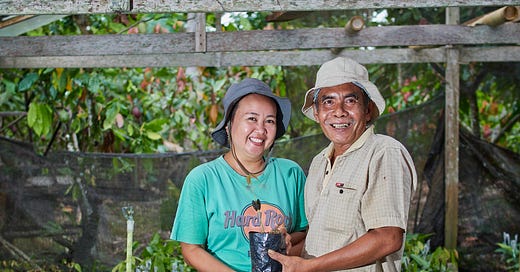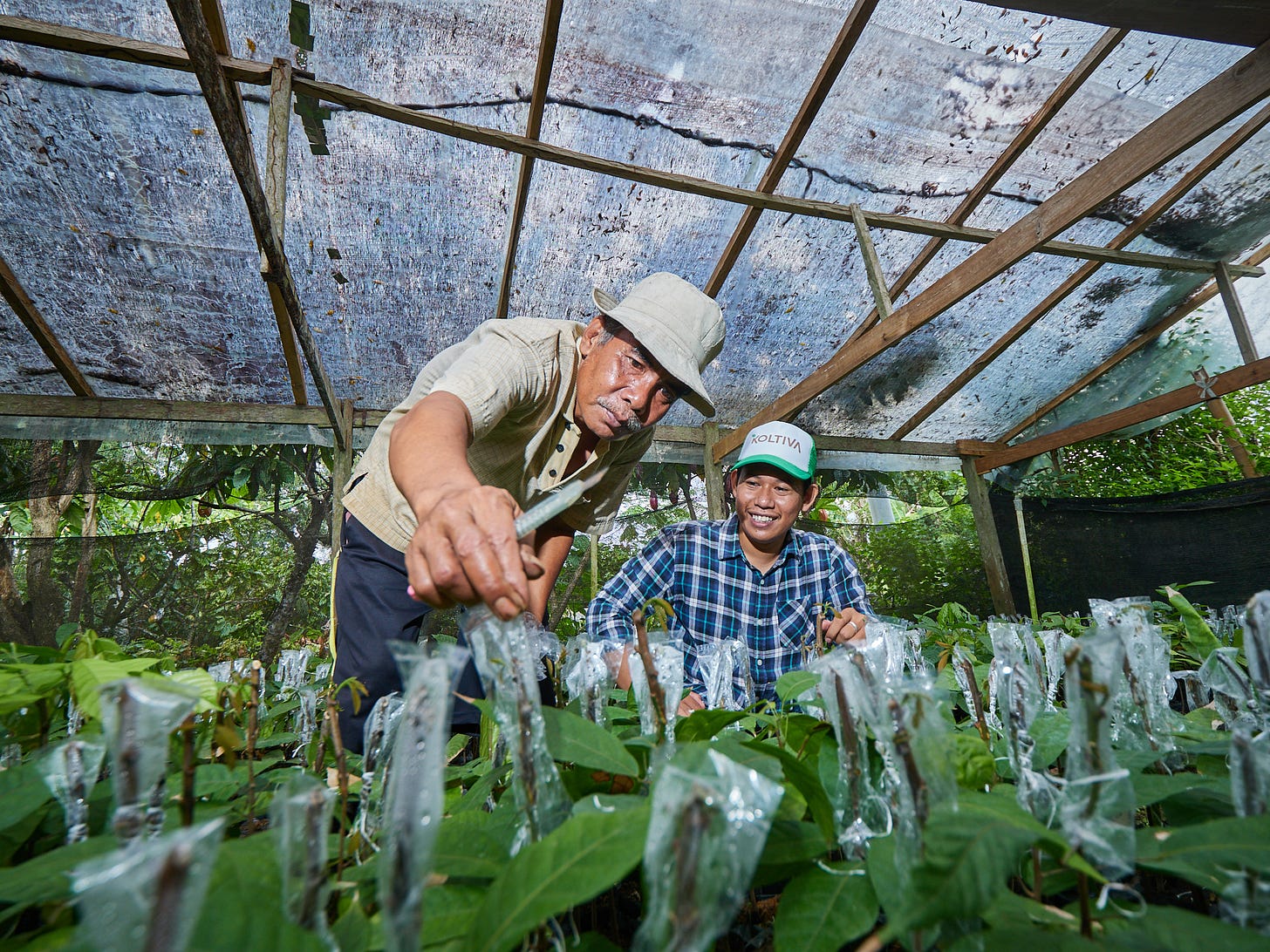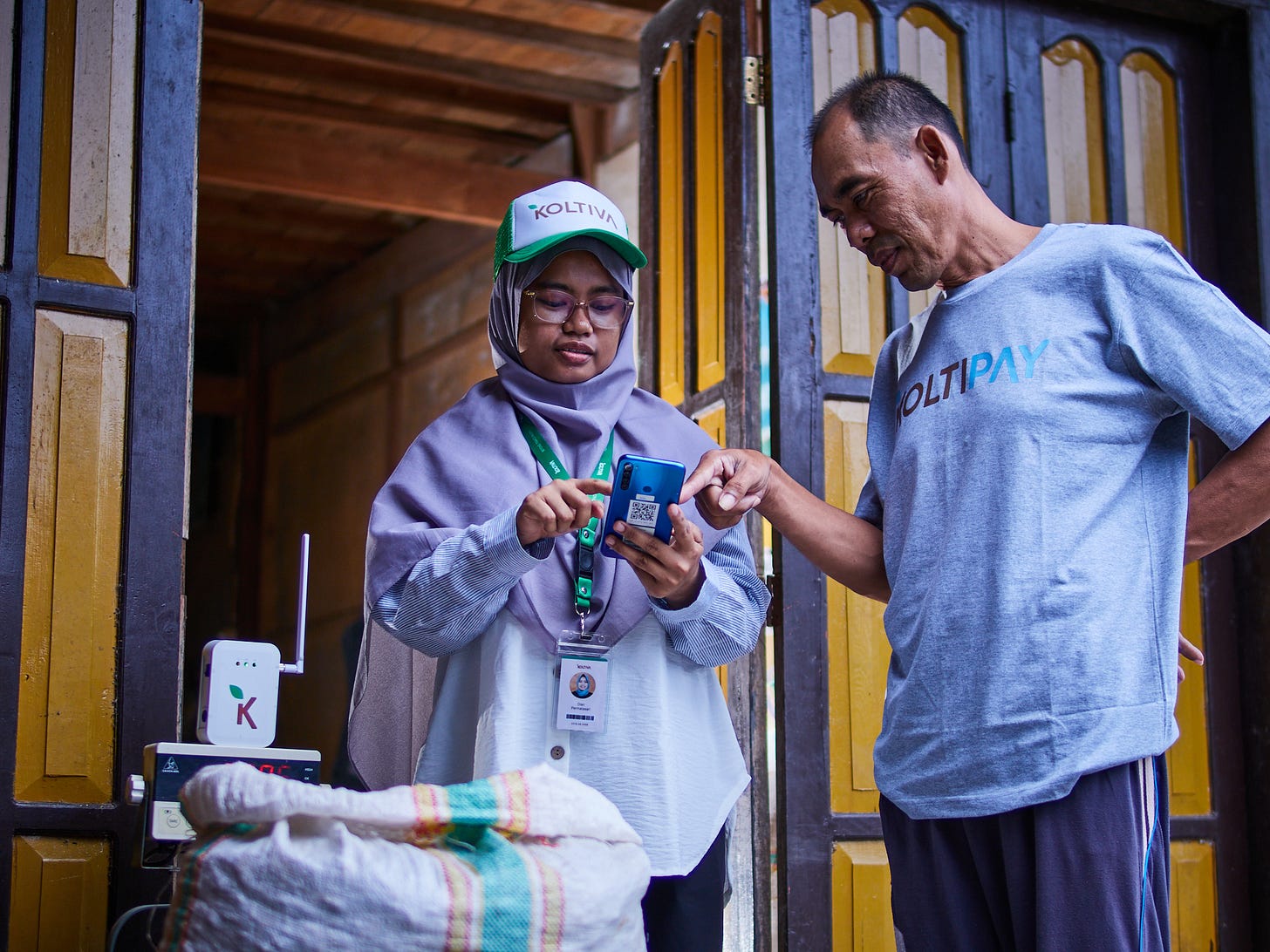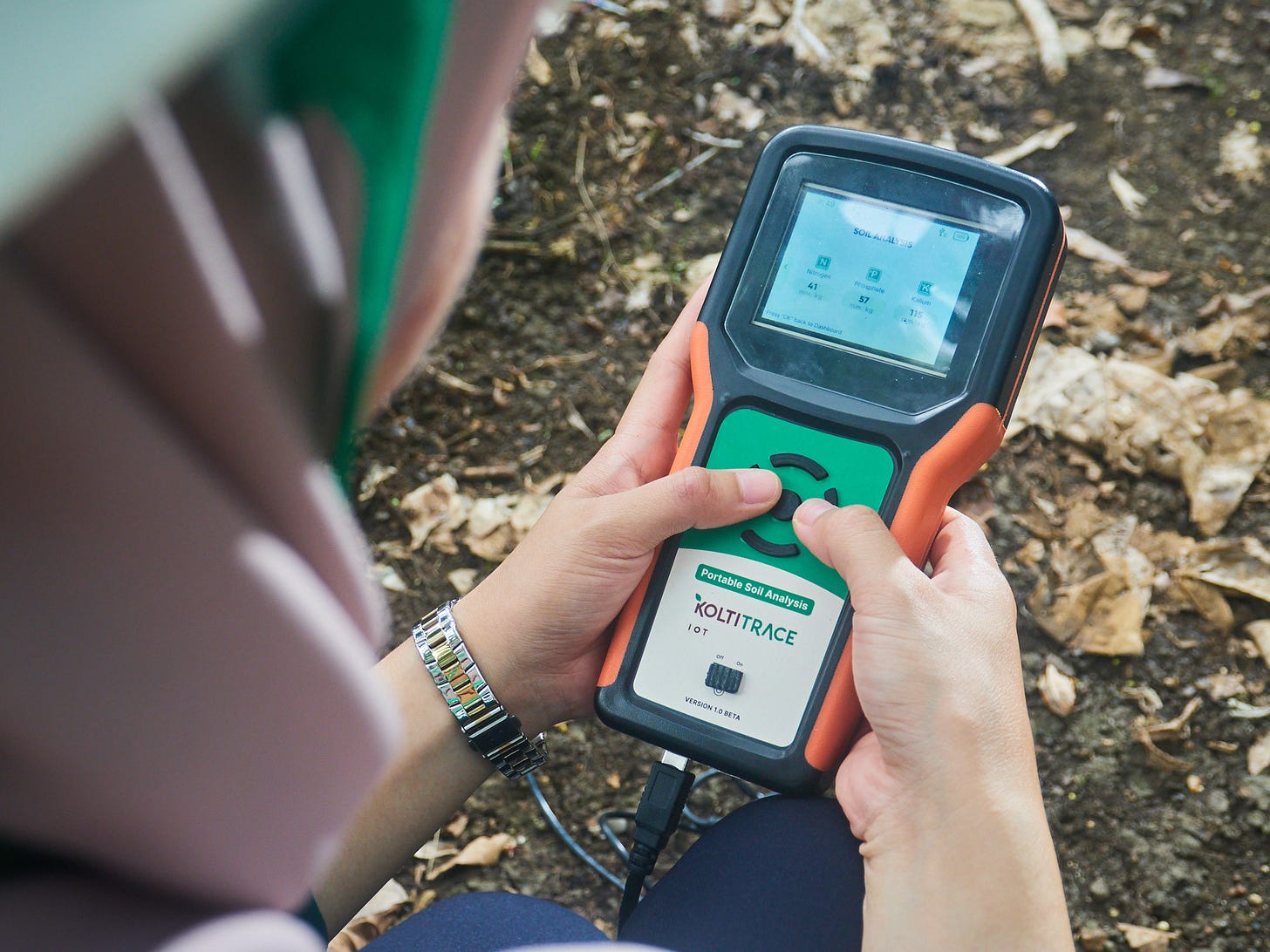💡 Investment Notes: Why we invested in Koltiva
Making global supply chains inclusive, climate smart, and traceable - from land to sea.
Here’s the bad news: Over 500 million of the smallholder farmers are living under the poverty line, and are vulnerable to climate change — even as they work to provide the majority of the world's food. To make matters worse, nearly half of the world’s farmers are unbanked - meaning they lack access to many of the financial products and knowledge to help improve their livelihoods.
The good news: Consumers care, and are putting the pressure on large agribusinesses to become more accountable for where they source their ingredients from, in both social and environmental terms. According to Bain's Global State of Traceability survey, 68% of senior supply chain leaders shared that they now view traceability as “very or extremely important”.
Given these push factors, more and more companies are making emission reduction, “net zero” pledges. Unfortunately, however, good intentions are not enough. Although one of three of the world’s largest publicly traded companies now have net zero targets, over 2/3 of them don't meet minimum procedural reporting standards.
Supply chain traceability in emissions accounting and beyond is easier said that done, as agricultural supply chains are extremely fragmented, with great risk of fraud. Large agribusinesses often purchase bulk, semi-processed ingredients from mills, that may have in turn bought them from aggregators in the middle of the supply chain, who in turn bought from farm co-ops, which are made up of many more individual farmers… MNCs do not always have the visibility of early supply chain activities that consumers think they do.
So what will it take to fix this problem?
The answer and opportunity here lies not just in the digitization of entire supply chains, but also, its integration on-the-ground operations - not only to validate the credibility of input data, but also, to translate digital analytics into usable real world action. This is no mean feat, but is exactly what the team at Koltiva is aiming to do.
Koltiva has a number of highly complementary products and services across 30 commodities (and growing); these crops include conventional crops such as coffee and palm oil, and more niche crops like seaweed and wasabi. Broken down simply here, they are:
Koltiskills, Koltiva’s capacity building and training arm for smallholder producers, to improve on-farm resilience and credibly verify digital supply chain data. Koltiva delivers this service through a combination of gamified e-learning and 1:1 agronomic coaching from its extensive on-the-ground network.
Koltitrace, Koltiva’s SaaS platform which tracks traceability metrics such as geo-tagged map sources, transportation routes, harvest and processing dates and weights, to allow MNCs and consumers to have full transparency on supply chain movement, and to make sense of complex data seamlessly. With the integration of all transaction and route data for each commodity its tracking, Koltitrace also enables accounting of transportation emissions.
Koltipay, an e-payment platform that helps producers create bank accounts, access microloans and microinsurance, and to purchase inputs + receive payments without cash. Again, the role of Koltipay is highly complementary to Koltiva’s overall goal of improving producer livelihoods and digitizing the supply chain, to grant farmers with greater access to price transparency and benefits of premiums for sustainable practices.
Koltitrade, for sourcing and delivery of fully traceable commodities, including single-source ones. Koltitrade leverages on software systems to improve trade fairness and bring responsible sourcing into real world operations.
Koltiva has clearly built up an impressive team and suite of products and services, and all given relatively modest levels of existing investment.
Here’s more on why we chose to invest.
1) Proven traction with multiple of the world’s largest agri-MNCs, to achieve impact at scale.
Koltiva already has its foot in the door with some of the largest agribusinesses in the world, and is already servicing over 6,000 enterprises globally.
Koltiva's value proposition as a one-stop-shop and product stickiness has been validated through multiple contract renewals with key clients. What’s more, these clients are continuing to show demand for Koltiva’s additional features and complementary products, representing an opportunity for Koltiva to grow its impact, average deal size and minimize future customer acquisition needs/expenses.
2) By servicing these clients, Koltiva has improved farm productivity and income by up to 4x.
All without the need for the smallholder producers to put in upfront investment themselves.
Many agritech solutions already exist to create a more sustainable and regenerative agricultural landscape - but smallholder farmers, already squeezed by razor thin margins, cannot afford to invest in things like training, precision agricultural sensors, organic bio-inputs, and new rools.
They don’t have the risk appetite for such investments, either, not before they can recognize any improvement of yields, or any certainty that they could access the premiums from growing crops more sustainably.
By charging MNCs for the cost of trainings and day-to-day coaching, and providing farmers with access to price premiums for responsible production, Koltiva has created a scalable pathway to realistically improving producer livelihoods.
3) High credibility of data on their platform, validated through a combination of algorithmic checks and boots-on-the-ground operations.
While other traceability software solutions exist in the market, Koltiva is the only one we have come across which has an on-the-ground team verifying the data inputs that go into the platform, to ensure a strong basis for their software analytics.
Koltiva not only has an alert system to recognize suspicious and/or irregular data inputs by users - it has also invested heavily in a wide network of on-the-ground staff enabled with IOT technology, to do spot checks on inputs such as farm areas, harvest areas, and more. Data systems and algorithms are important, but they’re only as good as the quality of data that is fed into them.
The team at Silverstrand is impressed by Koltiva’s ability to navigate and position itself well in such a tough market, and at such penetration and scale. With its firm foundation in its traceability SaaS over the past few years, they have positioned themselves strongly to capture value in multiple stackable revenue streams - but most importantly, all while creating positive impact for smallholder farmers at scale. We are proud to be backing Koltiva as it disrupts the commodity markets.
You can find more about Koltiva at their website, Linkedin, Twitter, Instagram and Facebook.
Enjoyed these notes? Check out the the quick version of our investment spotlights on Linkedin (and share it with your friends!), and be sure to subscribe for more updates.








